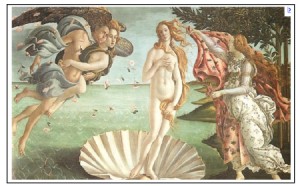The Power of the Heretic

| “H |
eresy is the conscience of culture, the voice of its deeper truths. It is not the heretic that society should fear, but blind orthodoxy. Orthodoxy controls the mob, its rabble-rousing spirit sways their opinions and swells the crowd, its power pours into the square, amplifying the calls for blood. And yet orthodoxy is confounded by its own appetite for persecution. For the heretic’s exemplary silence begins to convert the mob even as the flames consume him, his resolute enchantment speaks down the ages, louder than any sermon. His flames are his crowning laurel, his wreath of fire, the corona of his spiritual worth, his halo of intellectual heroism. The burning stake becomes his spiritual home: a last refuge, even, where gradually, the heretic abandons his terror and stands in the calm of conviction. Thus heresy alone hands over the key to wisdom and opens the door to redemption. For only by setting one’s face against the mob does one test the truth, strength and purity of one’s own philosophy. The desire for reputation, money, fame, even love – the flames consume all these, purge away all the dross of pride from one’s ideals. Thus, heresy’s flames do not burn away anything that was not doomed anyway. In diagnosing his own disease and applying the one extreme, efficacious purgative, the heretic is the great doctor of the soul…”
Bruno Marfuri, (1449 – 1497?) Neo-Platonist follow of Pico della Mirandola, and courtier to Lorenzo II de’ Medici, on witnessing the burning at the stake of several ‘heretics’ in the Piazza della Signoria commanded by edict of Savonarola.
| “S |
uch is the essentially Promethean character of human nature that blind orthodoxy fosters the very rebellion it seeks to repress…”
Percy Bysshe Shelley, (1792 – 1822)